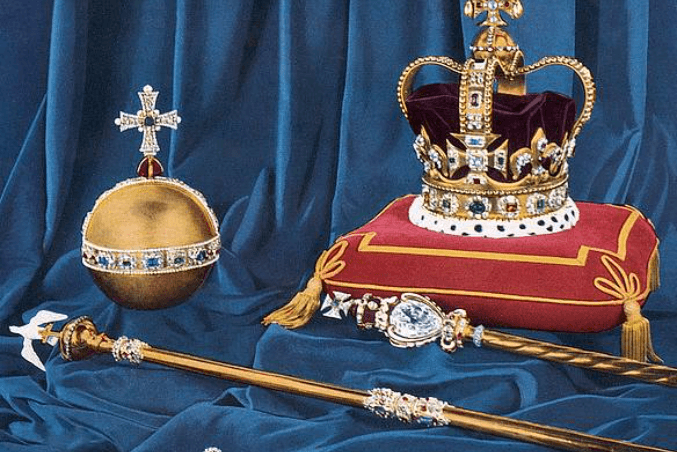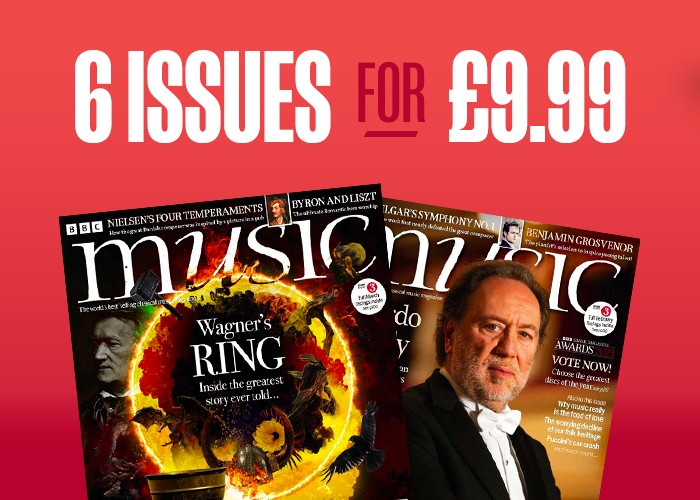Crown Imperial: a guide to Walton’s coronation march
It was first heard at King George VI's Coronation in 1953, and may also feature in King Charles's own Coronation. How much do you know about Walton's coronation march, Crown Imperial?

It's a famous march originally written for the Coronation of King George VI in 1937. And we may well hear it again at King Charles's Coronation. Here's all you need to know about William Walton's great march, Crown Imperial.
What is Crown Imperial?
Crown Imperial is a march for orchestra written by the 2oth-century English composer William Walton. It was written for the Coronation of King George VI in Westminster Abbey, London, on 12 May 1937. It's one of the best coronation marches and anthems from down the centuries.
It was one of three Walton compositions played at Elizabeth's Coronation. Orb and Sceptre also featured, as did Walton's Te Deum.
Like other concert marches by Walton (for example, Crown Imperial) and his predecessor Edward Elgar, Crown Imperial consists of a relatively fast opening section, in this case marked allegro reale (regal). There is then a trio section, featuring clarinets, cor anglais and violas with the other strings providing the accompaniment. After that, the march and trio reappear, building up to a rousing, joyous climactic ending.
Who composed Crown Imperial?
Orb and Sceptre was composed by William Walton, a 20th-century composer who wrote a number of works for royal and ceremonial occasions. However, Walton proved himself a very skilled composer of non-programmatic music too.
Why is it called Crown Imperial?
The piece gets its name from a speech in Shakespeare's play Henry V.
I am a king that find thee, and I know
'Tis not the balm, the sceptre and the ball,
The sword, the mace, the crown imperial,
The intertissued robe of gold and pearl,
The farced title running 'fore the king,
The throne he sits on, nor the tide of pomp
That beats upon the high shore of this world,
No, not all these, thrice-gorgeous ceremony,
Not all these, laid in bed majestical,
Can sleep so soundly as the wretched slave.
Walton would later revisit this speech for the title of Orb and Sceptre (which he preferred to Shakespeare's original Ball and Sceptre).
What else did William Walton compose?
Walton's Viola Concerto is one of the very finest for that instrument in the repertoire. His Cello Concerto is, similarly, a much-admired 20th-century string concerto, while Walton's Violin Concerto was taken up by the supremely gifted violinist Jascha Heifetz, among others.
Walton's Symphony No. 1 is also a major landmark in 20th-century orchestral writing. Written at around the same time as Vaughan Williams's Symphony No. 4, the Walton work has a similar sense of tension and drama. There's a landmark recording of it made by André Previn and the London Symphony Orchestra in 1967.
Last but not least, Walton's Belshazzar's Feast is a cantata for baritone, orchestra and chorus. Using text from the Bible, the work is dedicated to Walton's friend and benefactor Lord Berners and remains one of the composer's best loved creations.
Explore more great British composers:
Authors

Steve has been an avid listener of classical music since childhood, and now contributes a variety of features to BBC Music’s magazine and website. He started writing about music as Arts Editor of an Oxford University student newspaper and has continued ever since, serving as Arts Editor on various magazines.




